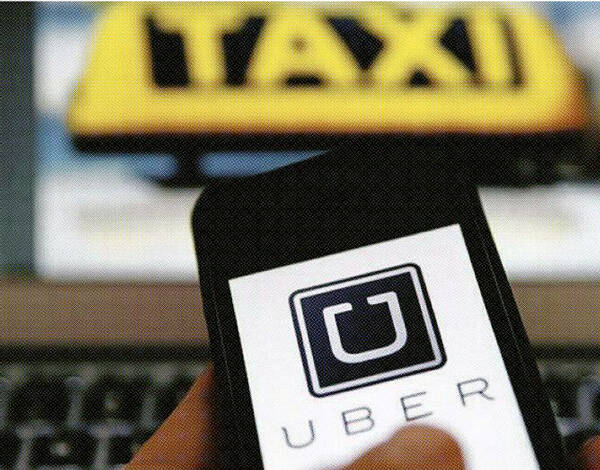News & Articles
Browse all content by date.


Duluth City Council recently passed an ordinance allowing TNCs (Transportation Network Companies) or online ride hailing services, like Uber and Lyft, to operate in Duluth. As of April 27, 2017, Lyft has began services in the Twin Ports and as of May 1, 2017, Uber has started up also. Other neighboring towns like Hermantown, Superior, and Cloquet haven’t set up their own regulations for these kinds of services yet, however the radius these companies are allowed to operate within, branches into these other towns to varied extents.
City Councilor, Noah Hobbs, was the driving force of getting the conversation started within the council, and after about a year of work it has become a reality. A lot of the college community and tourists from larger cities that already had these services, have expressed a want for these services before, some on Twitter, which grabbed the attention of Uber and Lyft.
“So far, Uber and Lyft are the only two that have shown interest in coming to Duluth, they are definitely the largest TNCs out there. Hopefully we can get a local TNC eventually, which is something a lot of other municipalities have done after allowing TNCs,” said Hobbs.
The main premise of how TNCs operate is through the use of smartphone apps, versus the common phone call you would use to hail a traditional taxi service. Instead of traditional taxis who uses company owned and licensed cabs, TNCs operate in privately owned vehicles provided by the driver. Thus, creating the question for Duluth’s City Council, “How do we regulate this?”
Over the course of the last year, the council put together a list of regulations for the new ordinance that heavily mirrors the current regulations in place for traditional taxis, with some exceptions where applicable. TNC companies do not all require background checks for their drivers, which has raised concerns in other cities in the past, so Duluth City Council opted to require background checks be done on drivers for TNCs when operating here. Some of our preexisting cab companies in Duluth screen their applicants with background checks, but it isn’t required by the city. All driving records, vehicles, registration, and insurance for both types of transportation services are heavily regulated, and is currently required of TNC drivers by their companies as well.
Not everyone is excited about this new addition to our transportation market, some of the local cab companies have fought the ordinance, while some seem unworried. One of the main controversies in the community, has been concern for if this will hurt existing local cab companies. Local cab company owner, Andy Lepisto is the sole proprietor and sole driver of his own company, Alpha Taxi, a reliable four year old taxi service in Duluth. When asked if he was concerned about the new competition, Lepisto said, “First and foremost, as a small company in this city, one car, one driver; I have a lot of loyal customers. Multiple customers in the past have expressed that they’d still prefer to drive with me whether Uber and Lyft comes here or not. They plan to stay with me, because they like my style, and my professionalism. I think that’s encouraging, and I think I’ll always be able to carve out a niche in this city.” He went on to say, “Being a small business owner, and a local to the area, it’s really important to me to support local businesses, and I think that’s important to a lot of people who live here too.”
The Duluth Airport has made a shift in the recent year or so, to start regulating the cabs able to pick up customers from the airport, for security and safety, but also to have some control over how many cabs can be at the airport at a time. Traditional cabs who are licensed with the city may now only service the airport if they have applied for a specific license with the airport, have met all requirements about licensing, registration, and vehicle specs; and must purchase and install a black box system in each vehicle. Since TNCs use private vehicles, there were questions about if they would be able to apply to service the airport. However, since Uber and Lyft are GPS based through the apps they exclusively use, it appears they will be eligible to apply to service the airport without purchasing the black boxes.
Local delivery driver, Chandler Gufflyr has been anticipating TNCs coming to Duluth for sometime, and was one of the first drivers on the road for Lyft when they launched last week. “I wanted to be an Uber or Lyft driver, actually months before I was even sure if they were going to be coming to Duluth, so I signed up online a long time ago, probably about a year ago. Then when I did find out they were going to be in Duluth, I was already ready to jump on right away,” said Gufflyr when asked how she became a TNC driver. The entire application process is online, aside from a vehicle inspection. Uber and Lyft require your vehicle to meet certain standards, as well as requiring proof of license, registration, and insurance. Gufflyr explained, “After you submit all of your info online, both companies require an vehicle inspection. Uber pays for it, but Lyft does not, but some places will do both at the same time.” Turns out, you can in fact be a driver for both Uber and Lyft simultaneously. “You can do both at the same time, and apparently that’s what a lot of people do,” added Gufflyr, “I’ve really only had a chance to drive for Lyft so far though, since Uber started later due to some paperwork issues they had with the city.”
Another controversy that has been brought to our attention from the community has been concerns about the peak pricing, and increased rates during busy times, or times they have a shortage of drivers. It seems to be based on a metric that depends on the rides requested to drivers available ratio, which will likely become less drastic as more drivers join the TNC force in Duluth. Though customers have to pay with a card via the app before the ride commences, they can see the current rate at that time before committing. Drivers also have the ability to accept or deny rides, but are responsible to pay the percentage Uber or Lyft keeps for each ride, once they commit to a ride request.
To try out one of these new services, download either of the free self-titled apps.
| Tweet |


